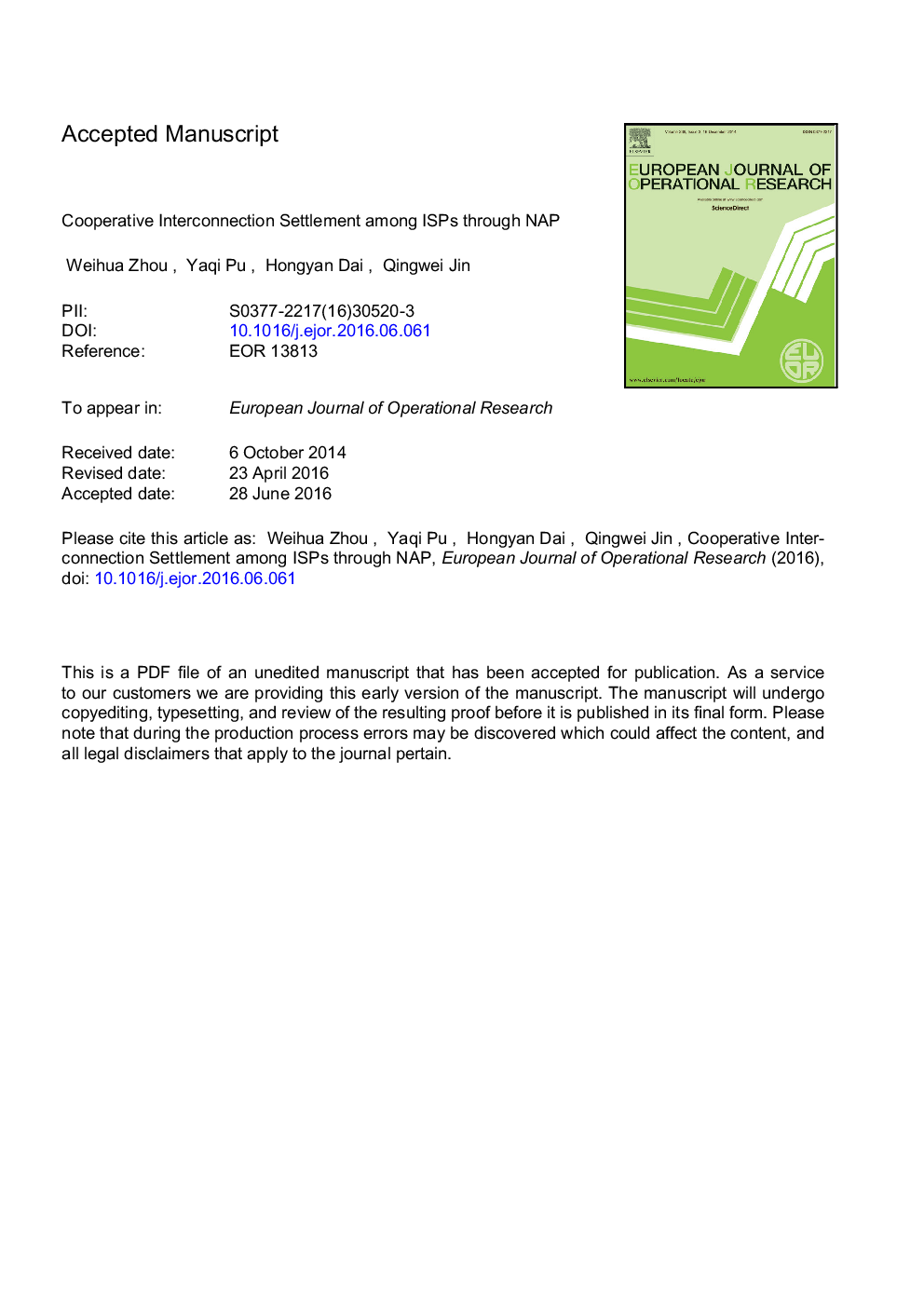| Article ID | Journal | Published Year | Pages | File Type |
|---|---|---|---|---|
| 4960170 | European Journal of Operational Research | 2017 | 39 Pages |
Abstract
This paper studies the settlement problem among Internet Service Providers (ISPs) who interconnect with each other through Network Access Point (NAP). A cooperative game framework is adopted for the analysis. Two commonly adopted allocations, i.e., the non-settlement profit allocation and the Shapley-value based profit allocation, are analyzed and compared. We check whether these two allocations can encourage ISPs to interconnect with each other (i.e., in the core of the game) and, at the same time, demonstrate fairness in settlement. Our results show that the non-settlement allocation is not in the core and does not preserve fairness, and the Shapley-value based profit allocation is in the core and demonstrates fairness. However, the complex structure of Shapley-value makes it difficult to understand for ISPs and hard to be implemented at NAP especially when ISPs can only make their pricing decisions independently. Therefore, we propose a Characterized Profit Allocation (CPA) which is in the core, preserves fairness and is easy to interpret. We further propose a settlement rule based on CPA which enables the ISPs to act independently but achieve global optimality. We also extend our basic model to incorporate interconnection quality decisions and market competition, and show that the proposed settlement rule and its extended form work well in these scenarios. Numerical experiments confirm that CPA and its corresponding settlement rule can effectively encourage interconnection among ISPs and motivate ISPs to expand their networks.
Keywords
Related Topics
Physical Sciences and Engineering
Computer Science
Computer Science (General)
Authors
Zhou Weihua, Pu Yaqi, Dai Hongyan, Jin Qingwei,
